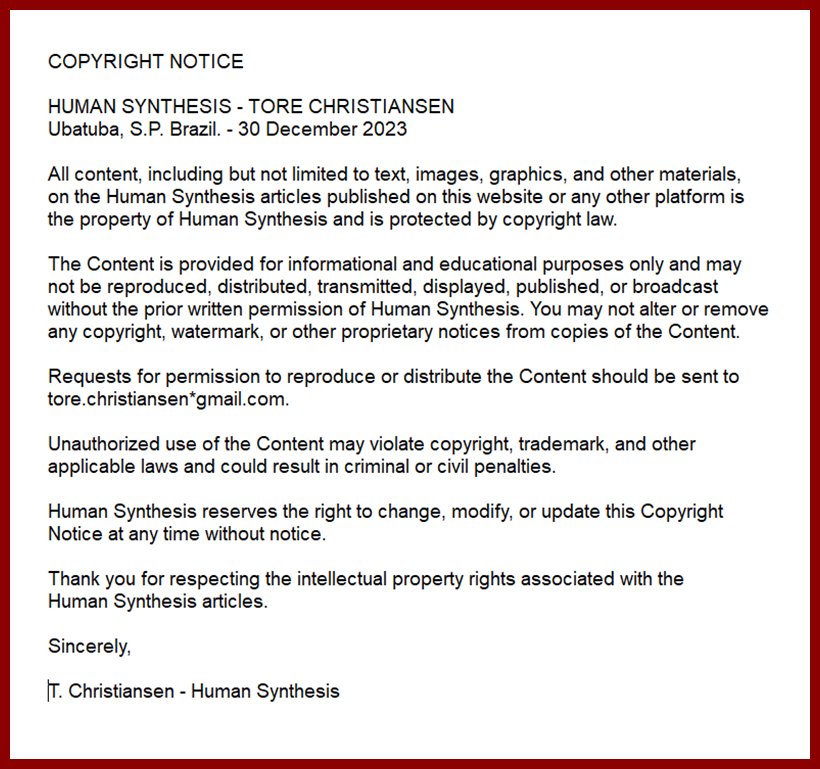‘What if there just is no solution?’ How we are all in denial about the climate crisis
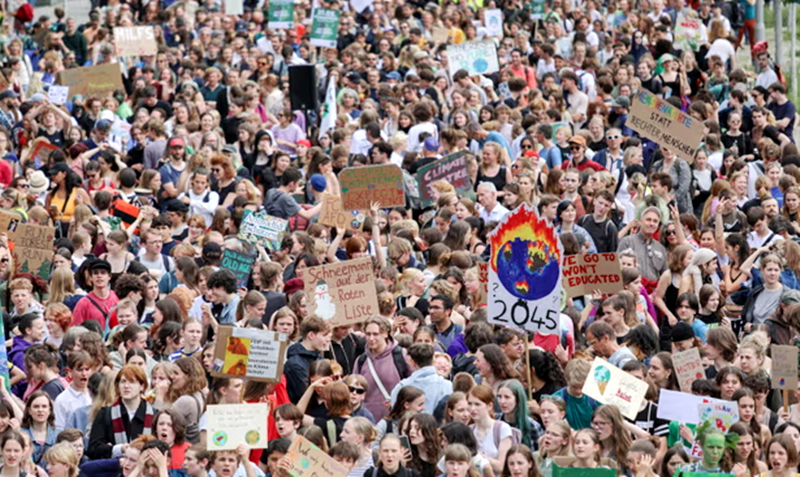
By Guardian - Maya Goodfellow -Thu 20 Jun 2024 12.19 BST
You are in denial about the climate crisis. We all are, argues the American scholar Tad DeLay. Right-wing climate deniers are not the only ones with a problem, he says when we speak in early June after the release of his book, Future of Denial.
For denial doesn’t only amount to rejecting the evidence, he argues – it also consists of denying our role in the climate crisis; absolving ourselves through “carbon offsets, hybrid cars, local purchases, recycling”. And in this, far more of us are implicated.
In some ways, this argument might not seem all that new. Multiple authors have pointed out that green capitalism, not rightwing deniers of the crisis, is our greatest obstacle to properly confronting the problem. DeLay agrees. The difference is the lens he brings to it – using psychoanalysis to explain the mechanisms behind denial.
In his new book, Tad DeLay suggests there is no rosy roadmap to go forward – but there are things we can do
In doing so he refuses the neatness of a definite or concretely optimistic path forward. Elaborate yet accessible – one chapter tells the history of Earth through rising and falling carbon dioxide – Future of Denial is an eloquent, forthright text about the realities of the crisis and where it is heading. Similarly, when we speak, he is friendly, open and does not seem to wallow in despondency, but his research has led him to informed conclusions that recognise the uncertainty and difficulty of where we are. He forgoes “how to solve the crisis” answers. To offer up such promises would, I imagine, itself be a form of denial.
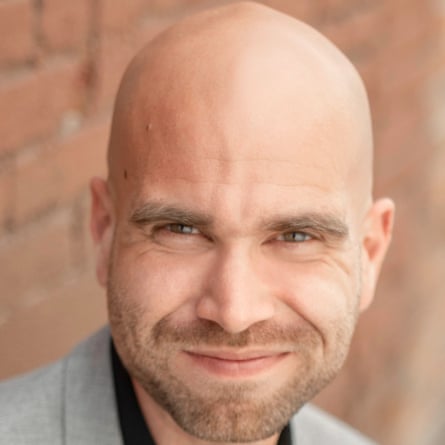
DeLay looks to Freud for a framework to understand denial: individuals negate distressing ideas and when the repressed thoughts begins to surface, people either deny reality or accept it but deny their moral culpability. This is how people respond to the climate crisis: rejecting the science or committing to “pseudo-solutions, gimmicks and false promises” to get themselves off the moral hook. “I like to joke that America and many western countries conveniently have a political party for whichever form of denial you would like with regard to the climate,” he says.
Raised as part of a “very Baptist evangelical fundamentalist megachurch” in Little Rock, Arkansas, he thought he would be a minister, but when he started reading theology and philosophy everything began to fall apart. As a first-generation college student, the literature, plus psychoanalysis, gave him a language to think through and out of the very religious “conceptual and cultural baggage” with which he grew up. DeLay brings all of his interests – psychoanalysis, philosophy and religion – to bear on the climate crisis.
One impetus for writing Future of Denial, he says, was watching the UK Labour party’s 2019 manifesto and US Democrat Bernie Sanders’ 2020 presidential campaign proposals “get rejected largely by people who probably thought of themselves as science believers even though both of them were proposing the most ambitious climate plans” these countries had ever seen. This frustration shapes the book, which includes a chapter called What Does the Liberal Want?, that is sharply critical of liberalism and ends with the damning line: ”They have no plan … nothing is fine.”
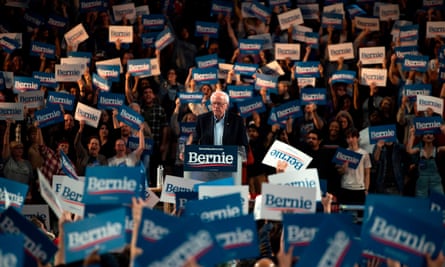
This denial is seductive to us all and in many ways it is in fact essential to function in the world. “You can’t admit, as a capitalist subject, that there’s little you as an individual can do,” DeLay writes, “and neither can you imagine the end of capitalism.” Your options, then, are “intensely boring” (attending meetings to “advocate for a ban on new gas hook ups”) or “terrific” (“ecoterrorism”), and “denial is going to come out in surprising other ways”. DeLay himself is not immune. “My second child was born while this book was being written,” he says. “Sometimes people will ask me: is that a type of denial? Perhaps. Is … writing this book, me trying to be able to at least in part show them that I did what I could? Perhaps.”
Though an enthusiastic supporter of the youth climate movement, he has little time for clutching at the promise of young people saving us. “I am all too familiar with this impulse; when I’m especially despondent about the state of the world I look to them: they are the hope, they know what’s what. But it’s a “comforting fantasy”, he writes, which rests on believing that “education and passion will get the job done without mucking up free markets with regulation or central planning”. It also provides an easy out: “If generational politics works, then we needn’t concern ourselves with class politics.” There is the denial again – and one I hadn’t really recognised in myself.
Denial is, of course, part of our everyday behaviour, and DeLay has many examples. Teenagers act recklessly because they deny their own morality, someone who will not go to the doctor when they know they should is in denial and so, too, are people who have affairs and buy expensive cars because they cannot face up to how unsatisfying their life is. But when it comes to climate, there is too much focus on denial as “conscious belief”, DeLay thinks. “We talk as if we are Protestants who think you get saved by having the correct thoughts about the big important question.”
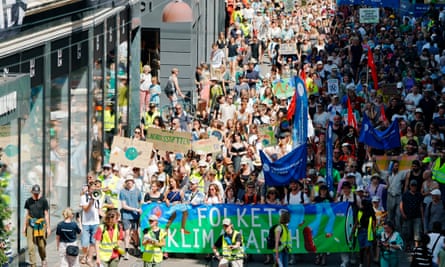
If it is possible at all, then, forcing action on the climate crisis will not be achieved by making people believe it is real and dangerous. “Most people don’t really care that much about their beliefs,” he says. Evangelicals who believe the end of the world is coming “still invest in retirement funds, right, they still have children, they still do all of the things [to] materially express a belief in some sort of future”.
The higher up the chain you go, the less individual neuroses are the problem. Even if everyone involved in fossil fuel extraction decided to stop, he argues, new companies would form overnight and file for leases with governments; the drive to consolidate profits and private property is unrelenting. DeLay points to the tight correlation between GDP and emissions, in particular GDP per capita: “The more money you have, the richer you are and the richer you are the more likely you are to emit according to a high emissions lifestyle.” He asks us all to reflect on the fact that whenever we hear the economy is doing well, that means fossil fuels are “doing great”.
Where to go from here? DeLay does not seem to have too much time for self-indulgent doom (he says some people seem to almost enjoy the anxiety and impotence), nor for simplistic, rosy roadmaps for a way forward.
He says there are some mitigation activities we should focus on. Though he’s no fan of reformism, without the Labour party in the UK or the Democrats in the US taking power, there is no chance of climate action, he says. Although what they offer is “not very much at all”, you can get some concessions from what he calls “capitalist climate governance” – the Paris accord, COP and “limited funding”. DeLay also does not advocate for living as hedonistically as you want, suggesting there is use in reducing your own emissions, even if this is patently not going to even touch the sides of the crisis.

We “cannot stop the progress of the storm”, he tells me. “This is too big, there is not a person on Earth who has the agency to stop this individually, it’s not even clear to me that anybody has much agency to stop this collectively … we might just be at the mercy of market logics where falling renewable prices eventually convert us over. At least that’s the hope, right, evidence is still kind of wanting.”
Adaptation has more of a chance, he thinks. Some of the things that are being proposed now are “grifts”, such as carbon offsets, but “may save us later”, such as carbon capture. More immediately, he says, we could all use any expertise we have to support local activist groups and encourage young people to devote their “life to this cause”.
As the effects of the crisis worsen, DeLay argues, inequality will rise, food prices will increase and police and border budgets will balloon. It will probably be people of colour, migrants, homeless people who will suffer the most, especially because when people see the hurricanes and the fires, they may believe in the climate crisis less, not more; politicians will turn up the barbarism and there will be something – or someone – else to blame. In this context, adaptation is also about unionising in your workplace and engaging with reactionaries while you do it, discouraging police work and doing things that are “illegal” to help house migrants.
There is no personal salvation though. “Just by driving to get groceries you emit carbon dioxide … a fifth of [which] … will still be in the air in 500,000 years, killing species that haven’t yet evolved.” We need to ask ourselves: “What if there just is no solution to that on any sort of meaningful scale?” and act accordingly.
Future of denial: the ideologies of climate change is published by Verso Books

The concept of airspraying, or more broadly geoengineering, to curb heat involves deliberate interventions in the Earth's climate system, such as injecting aerosols into the stratosphere to reflect sunlight. This approach is highly controversial and indeed raises concerns related to the principles of Chaos Theory and potential unintended consequences.
Key Points:
- Chaos Theory and Weather Systems: Chaos Theory suggests that small changes in a complex system, like the Earth's climate, can lead to large and unpredictable outcomes. This idea, often illustrated by the "butterfly effect," implies that interventions like airspraying could have unforeseen and potentially severe impacts on weather patterns globally.
- Unpredictability: Because climate systems are complex and interconnected, modifying one aspect can lead to cascading effects. This makes predicting the outcomes of geoengineering difficult, and the potential for unintended consequences is significant.
- Risk of Disruption: Geoengineering methods, such as spraying aerosols to reflect sunlight, could alter precipitation patterns, impact agricultural productivity, and affect natural ecosystems in ways that are hard to foresee and control.
- Ethical and Governance Issues: Implementing geoengineering on a large scale raises ethical questions about who gets to decide to deploy such technology and who is responsible for any negative outcomes. There is also a risk of unequal effects, where some regions may benefit while others suffer.
- Natural Climate System: Disturbing the natural climate system can have long-term implications that are not easily reversible. Once geoengineering techniques are deployed, stopping them could lead to rapid and severe climate changes, a phenomenon known as "termination shock."
Editors comments.
The people are not in denial about the irregular weather types we are experiencing but to WHO/WHAT is causing it. For thousands of years, nature has controlled the climate/weather through its own system like the CHAOS THEORY, and any human efforts to change this will cause a DOMINO EFFECT with great damages in many other places. Prior to the human interventions, wind, sea-streams and temperatures followed an evening out pattern. The human intervention are now causing building up and concentrations of same in specific places causing enormous heatwaves, hurrycanes and floods. DO NOT INTERFERE WITH THE CLIMATE!!
